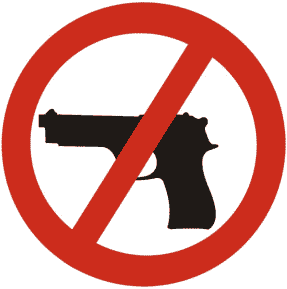Surge in Pennsylvania Gun Purchases Likely To Lead to Surge In Criminal Charges
Posted in Constitutional Rights on May 25, 2020
During the Coronavirus pandemic, some people focused on buying and hoarding toilet paper, but other people chose to focus on buying a gun. According to a recent article, the Pennsylvania State Police conducted approximately 305,000 background search reports between January and March of 2020 for people that were attempting to buy a gun. That number is almost 40,000 more than the number of searches that were conducted during the same period of time in 2019.
Gun Purchase and Background Search
When a person tries to buy a gun from a dealer in Pennsylvania, the person must complete an application or Firearms Transaction Record Form (ATF 4473 Form). On the form, some of the questions pertain to a person’s prior criminal record, mental health history, and drug use. If the person answers “yes” to any of the questions, the person cannot purchase a gun. If the person answers “no,” then the gun dealer conducts a Pennsylvania Instant Check System (PICS), which is basically a background search. If the person passes the PICS check, the person can buy a gun. If the person fails the PICS check, the person cannot buy a gun, the person is NOT told why he or she failed the PICS check, and the person is told about an appeal process with the state police and then leaves to head home thinking that the matter is closed.
that the matter is closed.
Many of the denials are actually forwarded to the police to be investigated. Through March of 2020, approximately 5,000 people were denied the purchase of a gun, and, of those, over 1,200 were sent to the police for additional investigation. The police investigate to decide whether or not criminal charges should be filed for providing incorrect information on the ATF form. Many of the people answered incorrectly by accident, often because the person did not fully understand the question. Other people do intentionally lie on the applications and hope that they do not get caught. The problem is that the police do not know which people made a mistake and which people intentionally lied. The liars are obviously going to lie again and claim that the issue was an accident, which means that almost everyone will tell the police that it was a mistake. The police often file charges and leave it to a district attorney, judge, or jury to decide whether it was truly an accident.
Gun Purchases and Criminal Charges
Errors on the form normally arise with questions pertaining to a prior criminal record, mental health issues, or a civil Protection from Abuse Order. Many people question how someone with a criminal record would not know the record and know that he or she could not buy a gun. People assume that the criminal justice system, either a judge or defense attorney, would have told a person that the law prevented the possession or purchase of a gun. Regrettably, that is NOT the case. The better criminal defense attorneys tell their clients about the collateral consequences that stem from a criminal conviction, like the inability to buy a gun, but the law does not require that the person is told. Because no one told the person that he or she could not buy a gun, they go to the gun store with the expectation that they can buy a firearm.
The questions on the application are also confusing. Remember that this form is prepared by the government, and anyone that has tried to complete their own taxes or request anything from the government should realize that government forms are not straight forward and easy. When dealing with the government, common sense does not apply. On the gun application, a person is asked if they have a pending charge or conviction for a “crime for which the judge could have imprisoned you for more than one year.” Sounds straight forward, meaning if the judge sentenced you to a year in jail, then you can’t buy a gun. Things are not as they initially appear. The “more than one year” language actually has a special definition and only applies to state misdemeanor offenses that could be punished by more than two years in jail. So, while the question says one year, you must read the instructions section on the form to see that one year actually means two years. Also, the question says that the critical number of years is based upon what the judge could have imposed and NOT based upon what the judge did impose. A person that was sentenced to jail would surely remember the actual sentence that was imposed, but that person may not have been told of the possible maximum  sentence that was permitted by law. If the person was told about the maximum sentence, it is highly unlikely that the person would remember that tidbit of information. For example, in a second offense DUI in the highest range of penalties, the offense is a first-degree misdemeanor. Such an offense allows a judge to impose a sentence of up to five years incarceration, which would trigger the Federal firearm prohibition for misdemeanor offenses. If the judge sentenced the person to ninety days to two years, the person recalls the judge saying that the maximum sentence imposed was two years, so the person believes that he can answer the “more than two years” question as a “no”. By answering no, the person answered incorrectly, and the person can be charged with a felony offense for providing false information on the form. This is just one example of how easy it is to provide an incorrect answer on the application.
sentence that was permitted by law. If the person was told about the maximum sentence, it is highly unlikely that the person would remember that tidbit of information. For example, in a second offense DUI in the highest range of penalties, the offense is a first-degree misdemeanor. Such an offense allows a judge to impose a sentence of up to five years incarceration, which would trigger the Federal firearm prohibition for misdemeanor offenses. If the judge sentenced the person to ninety days to two years, the person recalls the judge saying that the maximum sentence imposed was two years, so the person believes that he can answer the “more than two years” question as a “no”. By answering no, the person answered incorrectly, and the person can be charged with a felony offense for providing false information on the form. This is just one example of how easy it is to provide an incorrect answer on the application.
Drug Convictions and Gun Purchase
Federal law prohibits an unlawful user or addict of drugs from buying a gun. Such a prohibition makes sense because society does not want a person that is on meth or crack buying guns. How does the government know if a person is a user or addict of drugs? The government considers pending drug charges or prior drug convictions and assumes current use or addiction. The problem arises when a person with a pending drug charge or an old conviction no longer uses drugs, so, when asked the question if the person is a “user,” the person responds “no.” The person can truthfully answer that they are no longer using drugs. However, if the person has a prior drug charge, the person can may fail the PICS check, and the police may file charges for lying on the application. Some people are probably thinking that the police would not presume current drug use if the incident happened four or five years ago. Those people would be wrong. This past week, I received a call from a former client that was involved in a marijuana possession incident that long ago, and he was contacted by the State Police after he failed the PICS check. That former client may soon be facing a felony charge based upon a prior misdemeanor marijuana possession incident that occurred four or five years ago even though he stopped using when the initial incident occurred.
Contact a Lawyer
If the police do contact someone in this situation, the person should contact a lawyer before providing statements to the police. Too often, people think that they can just explain the situation to the police, let the police know that it was an honest mistake, and no charges will be filed. As noted above, almost everyone tells the police that the mistake was an accident. These cases can be successfully defended with a good defense lawyer. A few years ago, I had a client with a criminal record that answered the prior criminal record section incorrectly and was charged with the felony offense. We ultimately took the case to a trial, and the jury accepted that my client had made a mistake, and he was found not guilty. Because we won the case, the client avoided a felony on his record, was able to keep his professional banking license, was able to keep his job, and was thereby able to financially support his family.
